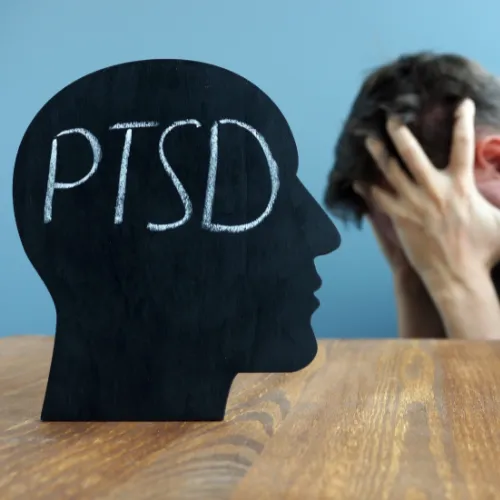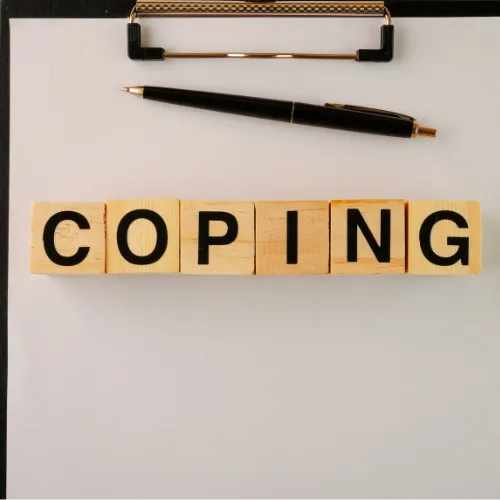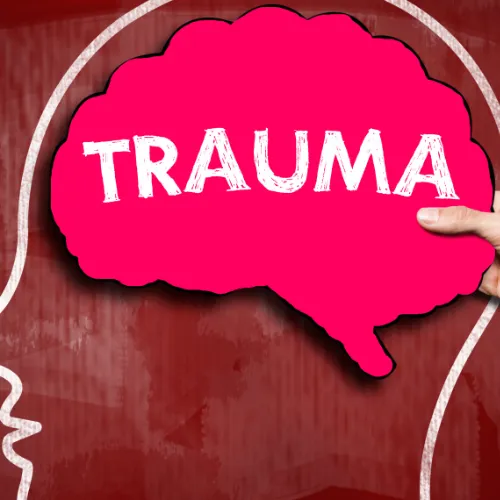

EARLY MORNING "MASTERMIND"
ZOOM CLASS
7 - Days a week
Mon- Sun
3:10 a.m PST
Open for 2 hours

MIKE GROSKOPF
TOPICS
PTSD
COPING SKILLS
BOUNDARIES
TRAUMA
SUBSTANCE ABUSE
EMOTION REGULATION
SELF-IMPROVEMENT
Exploring the Spectrum: Dive into Diverse Topics and Discover New Perspectives

PTSD
Post-Traumatic Stress Disorder (PTSD) is a complex psychological condition that can develop in individuals who have experienced or witnessed a traumatic event. These events may include but are not limited to combat, natural disasters, accidents, physical or sexual assault, or other life-threatening situations. Symptoms of PTSD can vary widely and may include intrusive memories or flashbacks, avoidance of reminders of the trauma, negative changes in mood and cognition, and hyperarousal. PTSD can significantly impact an individual's daily functioning, relationships, and overall quality of life. Effective treatment approaches often involve a combination of therapy, medication, and support from loved ones, aiming to help individuals manage their symptoms and regain a sense of control over their lives.

COPING SKILLS
Coping skills are essential tools individuals use to manage stress, navigate challenges, and maintain emotional well-being in the face of adversity. These skills encompass a broad range of strategies that can be tailored to suit individual needs and circumstances. Examples of coping skills include mindfulness practices, deep breathing exercises, physical activity, journaling, seeking social support, engaging in hobbies or creative outlets, setting boundaries, practicing self-care, and utilizing problem-solving techniques. Developing effective coping skills not only enhances resilience but also fosters a sense of empowerment and control over one's life. By actively incorporating coping skills into daily routines, individuals can better cope with life's ups and downs, ultimately promoting overall mental and emotional health.

BOUNDARIES
Boundaries are the invisible lines we establish to protect ourselves, define our personal space, and maintain our individuality within relationships and social interactions. These boundaries can be physical, emotional, or mental, and they serve as guidelines for acceptable behavior and limits. Setting healthy boundaries is crucial for maintaining healthy relationships, fostering self-respect, and preserving one's well-being. Examples of healthy boundaries include being assertive about one's needs and preferences, saying no when necessary, respecting others' boundaries, communicating openly and honestly, and recognizing when boundaries have been crossed. By establishing and maintaining clear boundaries, individuals can cultivate healthier relationships, reduce stress, and enhance their overall sense of self-worth and empowerment.

TRAUMA
Trauma refers to an emotional response to a distressing or disturbing event that overwhelms an individual's ability to cope. These events can vary widely in nature and intensity, ranging from accidents, natural disasters, or physical and emotional abuse to more chronic forms such as ongoing exposure to violence or neglect. Trauma can have profound effects on a person's psychological, emotional, and physical well-being, often leading to symptoms such as intrusive memories, flashbacks, nightmares, avoidance behaviors, hypervigilance, mood swings, and difficulty with relationships. It's important to recognize that trauma is a deeply personal experience, and individuals may respond to it differently. Seeking support from mental health professionals, engaging in therapy, and accessing resources within one's community are vital steps towards healing and recovery from trauma. With proper support and coping mechanisms, individuals can learn to manage their trauma symptoms and regain a sense of safety, resilience, and empowerment in their lives.

SUBSTANCE ABUSE
Substance abuse, also known as drug abuse, is a pattern of harmful or hazardous use of psychoactive substances, including alcohol and illicit drugs. It often involves the excessive consumption of substances despite their negative consequences on physical health, mental well-being, relationships, and overall functioning. Substance abuse can manifest in various ways, such as binge drinking, recreational drug use, or dependence on prescription medications. It can lead to a range of adverse effects, including impaired judgment, risky behavior, health problems, legal issues, and social isolation. Substance abuse is often intertwined with underlying psychological factors such as trauma, stress, depression, or anxiety. Effective treatment for substance abuse typically involves a combination of interventions, including therapy, support groups, medication-assisted treatment, and lifestyle changes. It's essential for individuals struggling with substance abuse to seek professional help and support to address the underlying issues driving their addiction and to embark on a path towards recovery and wellness.

EMOTION REGULATION
Emotion regulation refers to the ability to effectively manage and modulate one's emotions in order to adaptively respond to situations and navigate life's challenges. It involves recognizing, understanding, and appropriately expressing emotions, as well as employing strategies to regulate their intensity and duration. Effective emotion regulation skills enable individuals to cope with stress, tolerate distress, and maintain psychological well-being. Examples of emotion regulation strategies include mindfulness practices, cognitive reappraisal, relaxation techniques, problem-solving skills, and seeking social support. Developing strong emotion regulation abilities can enhance resilience, improve interpersonal relationships, and promote overall mental health. Through practice and self-awareness, individuals can learn to navigate their emotional experiences more skillfully, leading to greater emotional stability and fulfillment in life.

SELF IMPROVEMENT
Self-improvement is a lifelong journey of personal growth, development, and enhancement aimed at becoming the best version of oneself. It involves a commitment to self-awareness, learning, and intentional efforts to address areas of weakness or stagnation while maximizing strengths and potential. Self-improvement encompasses various aspects of life, including physical health, mental well-being, emotional intelligence, relationships, career advancement, and personal fulfillment. Key components of self-improvement include setting meaningful goals, cultivating positive habits, expanding knowledge and skills through continuous learning, fostering resilience, and practicing self-reflection and self-discipline. By embracing self-improvement, individuals can unlock their full potential, increase their satisfaction and fulfillment, and lead more purposeful and meaningful lives.
JOIN THE GROUP
Early Morning "MASTERMIND" Zoom Class

EARLY MORNING
"MASTERMIND"
ZOOM CLASS
7- Days a week
Monday thru Sunday
3:10 a.m. PACIFIC STANDARD TIME
Open for 2 hours
